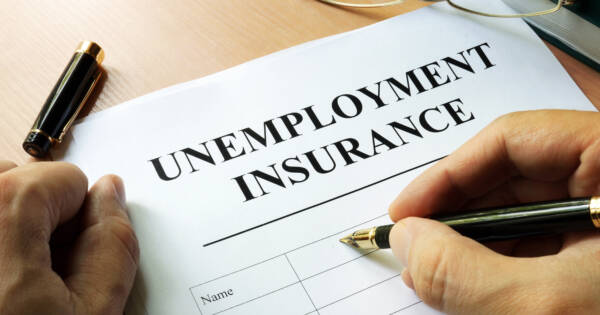We’ve probably all heard this story, one way or another. It remains one of the funniest things I’ve ever read about. It’s the story of the burglar who broke into a home and then tried to sue the home’s owner after hurting himself. I can’t quite remember all the details. Heck, at this point I’m not sure if it really happened or is just an urban legend. However, here’s the gist of what happened.
A would-be thief broke in into a home to steal something. Before they could execute their crime, they slipped in the kitchen on a wet floor. Incredulously, the burglar then attempted to sue the homeowner for his injury. Luckily, the owner had personal liability coverage on his homeowner’s insurance. That means his insurance company dealt with the whole ordeal. But can you imagine this happening to you? Are you supposed to laugh or get mad?
What is Personal Liability Insurance?
Basically, personal liability insurance covers accidents that cause bodily injury or property damage you might be deemed liable for. Fortunately, most claims are not as ridiculous as the above burglar story. For example, someone could slip and be injured in your driveway because you neglected to clear out the ice. They then sue you for medical bills, lost wages, and that catch-all term “pain and suffering.” If you have personal liability coverage with your home insurance, your insurance company will step in. They will help you with legal fees and/or pay for medical bills if you are deemed liable in court.
Personal liability coverage also covers less obvious accidents. Your liabilities are covered if your dog bites a stranger and they sue. In fact, dog bites are one of the most common claims for personal liability insurance.
Some people consider the biggest benefit of personal liability insurance is the generally high coverage limits. However, you shouldn’t overlook the fact that it will also see your insurance company (and their army of lawyers) go to bat for you. After all, they don’t want to be on the hook for a frivolous payout either. That will save you the stress of finding (and paying for) your own lawyer. You also won’t have to deal with many of the details, other than providing a statement or answering a few questions. The lawyers will handle most of the legwork, behind the scenes of your everyday life.
It’s Usually Part of Another Insurance Policy
Personal liability insurance can be purchased on its own. However, it’s commonly included as part of homeowners or renters insurance. Auto insurance also has a personal liability coverage component, which can be confusing. That’s why you might see people use “personal liability insurance” and “personal liability coverage” interchangeably. That’s also part of the reason why a standalone personal liability insurance policy is rare. Most people tend to get an umbrella insurance policy to cover any additional coverage above and beyond what their home or auto insurance covers. Still, it’s best to speak to an insurance agent if you have any reason to think that you’ll need a standalone policy.
Not being totally clear about the differences isn’t a big deal though. Just remember that personal liability insurance covers bodily injury and property damage you are legally responsible for. Here’s what that can mean in a more specific way.
Bodily injury refers to anything that has to the do with the injured party. That can mean medical costs, but also potential lost wages. The person who slipped on your driveway may have hurt their back and is now unable to perform their construction job for a couple weeks. The amount of lost wages could add up. Emotional stress is also covered, if the injured party claimed they suffered emotionally as the result of the accident.
Property damage is more straightforward. If an accident causes damage to property, your personal liability insurance can help repair or replace it. For example, if your tree falls over and crashed through your neighbor’s window, you won’t be held personally liable. That’s what insurance is for. And hopefully you have a good enough relationship with your neighbor that you can get this resolved without a lawsuit.
Personal Liability Coverage Limits
Most homeowners insurance include a minimum of $100,000 in personal liability coverage. The average policy falls in the $100,000 to $300,000 range. Raising the limit is often relatively inexpensive — a price that reflects the fact that most claims are of a lower amount. Still, a higher limit could be useful for those with significant assets they want to protect.
Let’s say your dog bites a stranger. The bite caused some complications and they needed to be hospitalized for some reason. If he decides to sue, the damages could potentially run into the hundreds of thousands of dollars. In this theoretical example, let’s assume you’ve amassed some wealth and are worth $800,000. If you don’t have personal liability coverage and the suit is seeking $400,000 in damages, half your net worth could be wiped out. Plus you might still be on the hook for additional legal costs.
On the other hand, a personal liability insurance policy would cover your legal costs. In addition, that $300,000 coverage limit means that your maximum liability in this accident is $100,000, since the insurance company will pay up to the coverage limit. Plus the insurance company has an incentive to pay less than $300,000, so their lawyers will do their best to fight the suit entirely. If they can get it knocked down below $300,000 (or dismissed entirely), you won’t owe a cent. That’s a huge difference, and shows the benefit of personal liability insurance. Same freak accident, two vastly different outcomes.
The Bottom Line
Personal liability insurance is just like any other insurance. You pay a small premium in order for financial protection in the unlikely event of an accident or disaster. You probably won’t think about it until the moment comes when you really need it. And if you don’t have it when the time comes, you’ll wish you did.
Look into your home, auto, or renter’s insurance policies. Make sure you know whether they have any personal liability coverage — and for how much. If it’s missing (or on the low end), consider adding additional coverage to your plans. With so many things that can go wrong in the world, we strongly suggest you give this coverage some extra thought. Make sure the amount you are insured for makes sense for you.
 Shutterstock
Shutterstock







